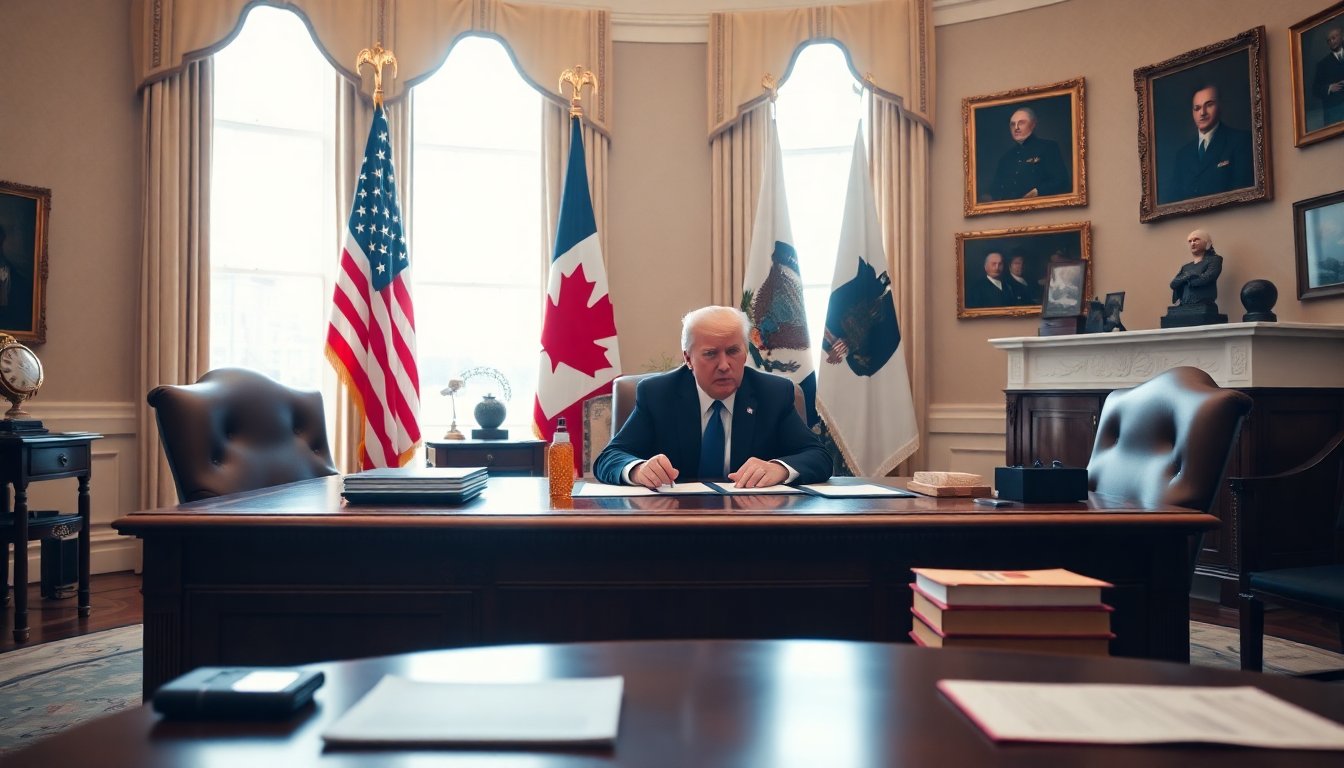Table of Contents
In a notable development, U.S. President Donald Trump displayed a friendlier demeanor towards Canada during an Oval Office meeting with Prime Minister Mark Carney. This interaction marks a significant departure from his previously critical stance since his election.
During the 32-minute session, Trump emphasized a “mutual love” between the countries, commended Canada’s efforts in addressing the fentanyl crisis, and praised Carney as a “very strong, very good leader.” While these remarks are encouraging, they do not guarantee immediate policy changes.
The facts
Trump’s comments represent a stark contrast to his earlier rhetoric, which often depicted Canada as unfair in trade practices. He had previously claimed that the U.S. could thrive independently of Canadian exports and suggested Canada consider becoming the 51st state. However, this recent meeting indicated a potentially warmer approach, suggesting a thaw in relations.
Acknowledgment from trade experts
Kelly Ann Shaw, a senior trade advisor during Trump’s first term, observed that the meeting contained promising elements. She stated, “I have witnessed Trump interact with many world leaders, and this was one of the most positive interactions I’ve seen.” Such remarks indicate a notably warmer atmosphere compared to past discussions.
Flavio Volpe, president of the Canadian Automotive Parts Manufacturers Association and a critic of Trump’s trade policies, noted a change in tone. He commented, “Trump’s comments indicated a potential elevation of Canada’s status as a key competitor.” This was especially evident in discussions about the auto industry.
Concerns linger despite positive dialogue
When discussing the auto sector, Trump maintained a more conciliatory tone than in recent months. He recognized the competitive market between the U.S. and Canada while suggesting that both nations’ interests are interconnected. “We want to manufacture our vehicles here, but we also want Canada to succeed in its automotive production,” he stated, hinting at collaborative efforts.
However, the question remains: will this change in rhetoric result in actual policy adjustments? Without tangible shifts in tariffs, Canada’s struggling industries, including auto, steel, aluminum, and lumber, will continue to face challenges.
Hints of potential agreements
Despite uncertainties, Trump hinted at possible future agreements. When asked if Canada would leave the meeting empty-handed, he replied, “We are working on many things… I believe they will leave very satisfied.” Such comments suggest that discussions may yield more fruitful outcomes than in the past.
Trump offered effusive praise for Carney, describing him as a “world-class leader” and commending his negotiating skills. Trump stated, “He’s a good man and a tough negotiator. I think he’s an outstanding Prime Minister.” In response, Carney humorously urged reporters to “write that down,” underscoring the significance of Trump’s endorsement.
The importance of personal relationships in diplomacy
While the personal dynamics displayed during the meeting may invite analysis, the influence of interpersonal relationships in politics is significant. Experts note that Trump often values personal connections in shaping his political decisions.
During the 32-minute session, Trump emphasized a “mutual love” between the countries, commended Canada’s efforts in addressing the fentanyl crisis, and praised Carney as a “very strong, very good leader.” While these remarks are encouraging, they do not guarantee immediate policy changes.0
During the 32-minute session, Trump emphasized a “mutual love” between the countries, commended Canada’s efforts in addressing the fentanyl crisis, and praised Carney as a “very strong, very good leader.” While these remarks are encouraging, they do not guarantee immediate policy changes.1
During the 32-minute session, Trump emphasized a “mutual love” between the countries, commended Canada’s efforts in addressing the fentanyl crisis, and praised Carney as a “very strong, very good leader.” While these remarks are encouraging, they do not guarantee immediate policy changes.2


